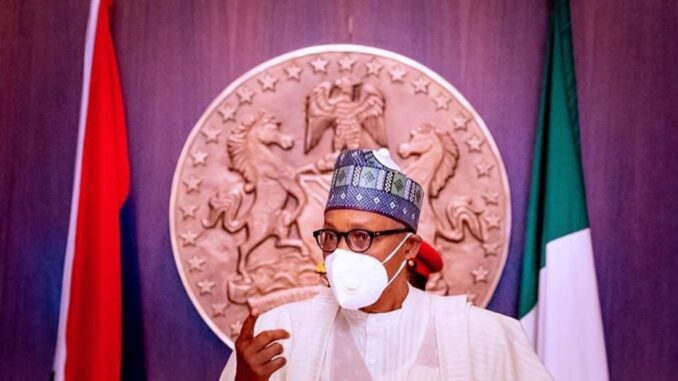
In 2018, Nigeria suffered international embarrassment when President Muhammadu Buhari was forced to deny online claims that he had died and been replaced with a clone.
In 2021, such claims may be made to look too real even though they are false.
Could President Buhari be cloned after all? This is part of the dangers of deepfake technology and what it could mean for our democracy.
A week or so ago videos showing Hollywood actor Tom Cruise doing a magic trick and telling bad jokes went viral around the world.
The videos were quickly proven to be fake – computer-generated images known as deepfakes which make people appear to say or do things they never said or did- but only after the videos had been watched and shared online by tens of millions of people.
Fake footage of Tom Cruise is harmless enough – at least when all the Top Gun star is doing is cracking jokes – but what if it had been President Buhari? And what if he had been instructing Nigerians to do something dangerous, deadly or destructive?
Would people have obeyed the fake President?
In the United Kingdom, one major broadcaster has highlighted the potential danger of deepfakes by using a deepfake Queen to deliver an alternative Christmas message warning of the dangers of online misinformation. The actor who provided the voice of the Queen was quoted as saying: “As an actress it is thrilling but it is also terrifying if you consider how this could be used in other contexts.”
As it becomes easier and less detectable for people to manipulate images of their political opponents using deepfake technology, how can we trust anything our leaders say to us?
What hope is there for our democracy if election candidates can convincingly create footage of their opponents saying something damaging, offensive or ridiculous and have that footage shared infinitely before the truth comes out?
The reality of the impact deepfakes could have on our democracy could be a little more subtle – but no less dangerous.
Consider another recent example of an online video being shared around the world.
Perhaps you have seen the story of the young woman leading an outdoor exercise class in Myanmar, who appeared to have inadvertently filmed the military coup happening behind her.
Within days people had “proven” that that film was no less fake than the footage of Tom Cruise.
And they were wrong.
And that is the real deepfake danger. Not just that people start to believe things that are not true, but that they refuse to believe things that are.
In Nigeria, the democratisation of information has allowed the international exposure of official wrongdoing – not least during the #EndSARS protests.
But what if it becomes easy – and believable – for authoritarian regimes to plausibly deny the reality of the most incriminating evidence. The next time official wrong-doing is caught on camera, it is all too easy to see wrongdoers claiming that the footage was manipulated or deepfake. And all-too-easy for people to believe them.
If you cannot believe anything, you will end up believing nothing. And where does that leave our democracy?
So what is to be done?
The first step has to be opening verifiable and proven channels of communication between electors and elected.
At the digital democracy campaign I lead we have created a free smartphone app called Rate Your Leader to do just that.
The app directly connects public figures we have verified are who they say they are to verified voters they serve. This allows a direct person-to-person exchange of information between people who are definitely who they say they are. This allows voters to be sure they can trust the information they are receiving, even if they don’t like it.
Information that comes unfiltered from our political leaders and institutions using apps like Rate Your Leader, and delivered in the spirit of transparency and accountability, carries the watermark of credibility that can act as a firewall against the most convincing of online misinformation.
Rate Your Leader also allows users to rate information they receive from their leaders, and public endorsement of such sources of information, in turn, creates a virtuous circle of improved trust in those leaders and institutions, and wider democratic engagement.
At this stage, the most insidious and damaging digital misinformation continues to be half-truths innocently spread in the family group chat. But in the deepfake era that might be about to change – and Nigeria must prepare for a future where seeing no longer is believing.
Joel Popoola is a Nigerian tech entrepreneur, digital democracy campaigner and creator of the Rate Your Leader app. Follow Joel on Twitter @JOPopoola
END

Be the first to comment